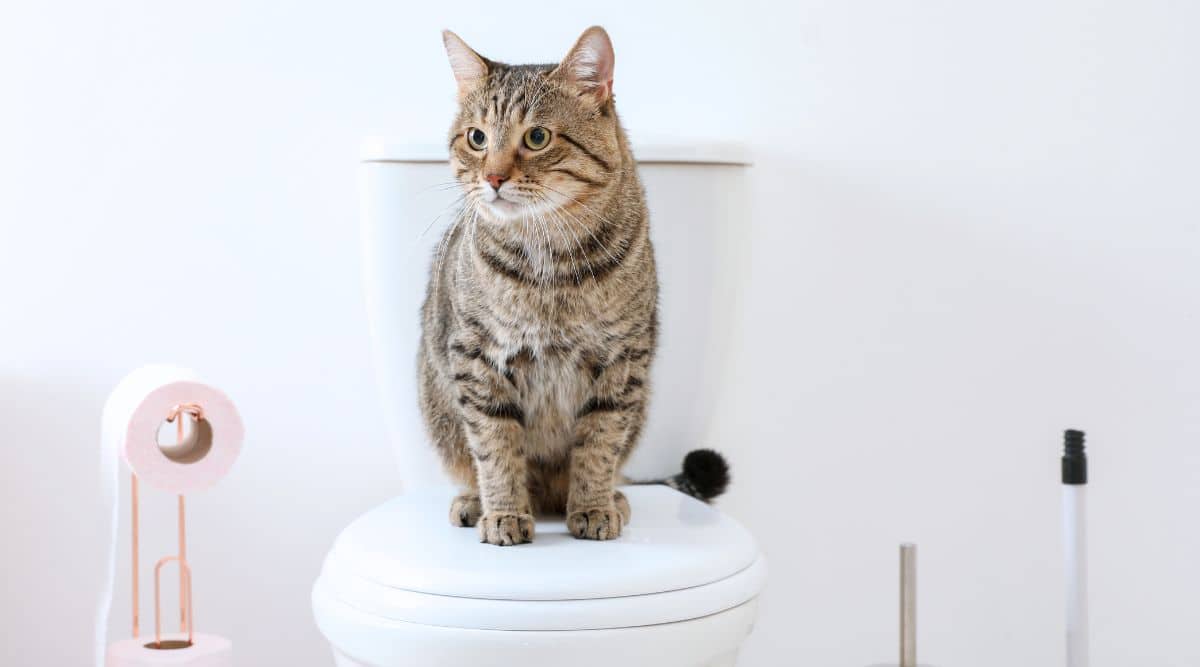Prevent Clogs and Damage: Never Flush Cat Poop Down Your Toilet - Professional Recommendations
Prevent Clogs and Damage: Never Flush Cat Poop Down Your Toilet - Professional Recommendations
Blog Article
In this article below you can get lots of extremely good tips about How to Dispose of Cat Poop and Litter Without Plastic Bags.
:max_bytes(150000):strip_icc()/0S1A1090-49a8e2c66f8e41d6901f2559787a7f24.jpg)
Introduction
As pet cat proprietors, it's necessary to be mindful of just how we throw away our feline pals' waste. While it may appear convenient to flush pet cat poop down the bathroom, this practice can have destructive repercussions for both the environment and human wellness.
Alternatives to Flushing
Luckily, there are safer and extra accountable ways to dispose of feline poop. Consider the adhering to alternatives:
1. Scoop and Dispose in Trash
One of the most common approach of getting rid of cat poop is to scoop it into a biodegradable bag and throw it in the trash. Make sure to use a specialized litter scoop and dispose of the waste immediately.
2. Usage Biodegradable Litter
Choose eco-friendly cat litter made from products such as corn or wheat. These trashes are environmentally friendly and can be securely thrown away in the trash.
3. Hide in the Yard
If you have a yard, take into consideration burying pet cat waste in an assigned area far from veggie gardens and water sources. Make certain to dig deep adequate to prevent contamination of groundwater.
4. Set Up a Pet Waste Disposal System
Buy a pet dog waste disposal system specifically created for cat waste. These systems make use of enzymes to break down the waste, minimizing odor and ecological impact.
Wellness Risks
In addition to ecological issues, purging feline waste can also position wellness dangers to human beings. Feline feces might include Toxoplasma gondii, a bloodsucker that can trigger toxoplasmosis-- a possibly serious ailment, especially for expectant females and individuals with damaged immune systems.
Ecological Impact
Purging feline poop presents hazardous virus and parasites into the water, positioning a significant threat to aquatic ecological communities. These contaminants can negatively influence marine life and compromise water top quality.
Conclusion
Accountable pet dog ownership extends beyond offering food and sanctuary-- it additionally involves appropriate waste monitoring. By avoiding flushing feline poop down the bathroom and going with alternative disposal techniques, we can reduce our ecological footprint and safeguard human health.
Why You Should Never Flush Cat Poop Down the Toilet
A rose by any other name might smell as sweet, but not all poop is created equal. Toilets, and our sewage systems, are designed for human excrement, not animal waste. It might seem like it couldn’t hurt to toss cat feces into the loo, but it’s not a good idea to flush cat poop in the toilet.
First and foremost, assuming your cat uses a litter box, any waste is going to have litter on it. And even the smallest amount of litter can wreak havoc on plumbing.
Over time, small amounts build up, filling up your septic system. Most litter sold today is clumping; it is made from a type of clay that hardens when it gets wet. Ever tried to scrape old clumps from the bottom of a litter box? You know just how cement-hard it can get!
Now imagine just a small clump of that stuck in your pipes. A simple de-clogger like Drano isn’t going to cut it. And that means it’s going to cost you big time to fix it.
Parasitic Contamination
Believe it or not, your healthy kitty may be harboring a nasty parasite. Only cats excrete Toxoplasma in their feces. Yet it rarely causes serious health issues in the cats that are infected. Most people will be fine too if infected. Only pregnant women and people with compromised immune systems are at risk. (If you’ve ever heard how women who are expecting are excused from litter cleaning duty, Toxoplasma is why.)
But other animals may have a problem if infected with the parasite. And human water treatment systems aren’t designed to handle it. As a result, the systems don’t remove the parasite before discharging wastewater into local waterways. Fish, shellfish, and other marine life — otters in particular — are susceptible to toxoplasma. If exposed, most will end up with brain damage and many will die.
Depending on the species of fish, they may end up on someone’s fish hook and, ultimately on someone’s dinner plate. If that someone has a chronic illness, they’re at risk.
Skip the Toilet Training
We know there are folks out there who like to toilet train their cats. And we give them props, it takes a lot of work. But thanks to the toxoplasma, it’s not a good idea.

We had been shown that write-up about Don’t flush cat feces down the toilet from a friend on our other web property. In case you enjoyed reading our blog post kindly do not forget to pass it around. We treasure reading our article about How to Dispose of Cat Poop and Litter Without Plastic Bags.
Visit Link Report this page